After announcing the theme of the next Identità Golose congress early in November (scheduled in Milan on the 7th-9th March), The Sense of Responsability, we’re now happy to disclose the emblem-dish of the 16th edition of Identità. Which in 2020 will be a dessert, signed by a man who is not only one of the most appreciated pastry-chefs in Italy and internationally, but is above all a very precious partner of our Congress.
In 2020, Corrado Assenza will participate in Identità Golose for the 16th time. On this occasion, behind him, there will be a photo of his Cassata. Indeed, every edition of Identità Golose is summed up by the dish of a speaker and «when we chose the theme for 2020, The Sense of Responsibility – Paolo Marchi recalled – we all realised that finding a recipe that would summarise this theme would not be easy. It wasn’t enough to find something delicious, an unquestionable excellence. The sense of responsibility led us to think both of something superlative, and of the qualities of its creator. And who better than Corrado Assenza? He’s certainly not the only one who has always shown a sense of responsibility towards every aspect of his profession, but his creed embraces everything well beyond the horizon of Noto. And his cassata is a sublimation of a millennial tradition, made contemporary through a profound knowledge of history, of raw materials, and of more contemporary diet and taste aspects». Without any folklore whatsoever.
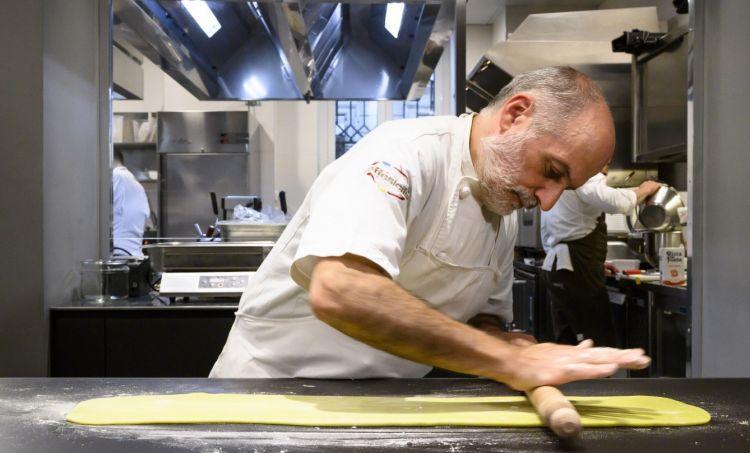
The preparation of Corrado Assenza’s Cassata in the kitchen of Identità Golose Milano. Photos by Brambilla-Serrani
One can immediately find the absolute harmony between
Identità Golose and
Corrado Assenza in the words of the pastry-chef from
Caffè Sicilia, who arrived in Milan, at the
Hub in Via Romagnosi to prepare his
Cassata in front of photographers
Francesca Brambilla and
Serena Serrani. Already once, when chatting with him, he said he thought that
Paolo Marchi when choosing the theme for the Congress, always found an aspect that
Assenza himself thinks crucial in his approach in the kitchen.
«
Paolo expresses, with the words he chooses for the theme of the Congress, something that has long been a part of my vision, of my work. It always happens, and it surely happened this time as well», he says with a smile. «Responsibility -
Assenza continues – is the synthesis of all we did in the 16 years of the Congress. Because you realise that after 16 years you must become responsible, as a congress, and as a participant for 16 times I’m responsible of taking part in this story, of sharing its birth, its development, and its future too. And I also take the responsibility of presenting my recent work as a pastry-chef to the world of Italian cuisine. I use the word “cuisine” and not gastronomy because I want to include everything: fine dining, ordinary food, all sorts of cuisine: we need all of them».
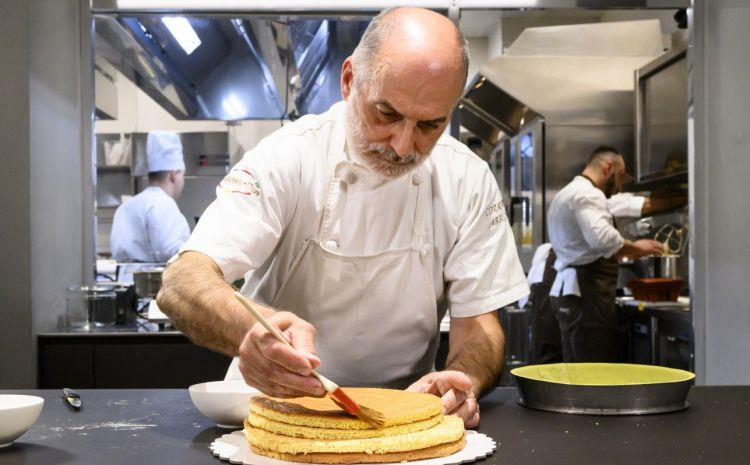
Why so?
Italian cuisine is a large and significant world. It borders directly, and is in constant contact with agriculture, with the distribution of agricultural and food products… it’s a very large family. It gives a real picture of society and of our country. I feel responsible of conveying these values, ideals, the style and approach to work, but most of all the relationship between the owner of a business and his collaborators. I feel responsible of showing that there’s a valuable model of food business in Italy that is healthy, efficient and can be replicated.
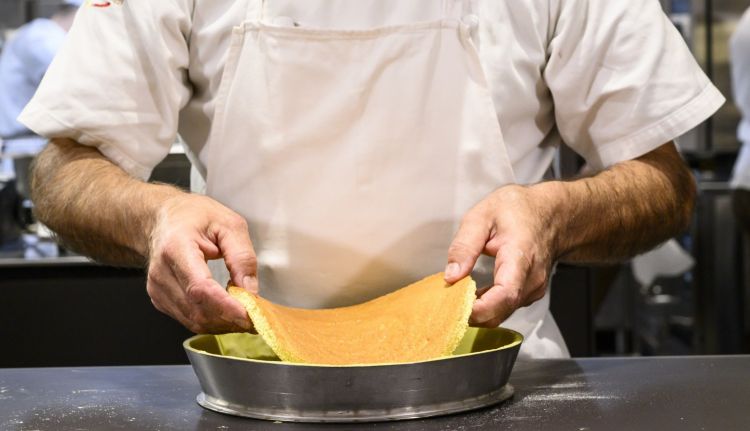
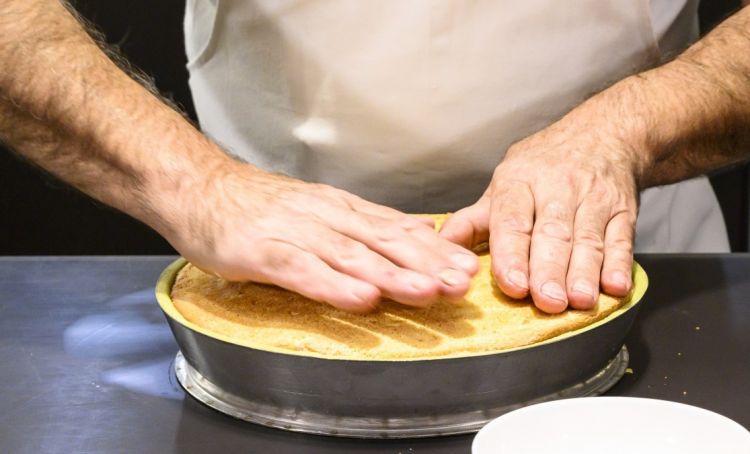
Often, when we speak of responsibility in this context, these days, one thinks also of another word, sustainability. What does it mean to you?
I sincerely believe I have understood the meaning of sustainability for some time now, and I’ve done so thanks to a special sensitivity that I get from observing the world from Noto. In a sort of one-to-one relation between the walls of the pastry-shop and the dry walls of the local fields, there’s a strong, intimate relationship between the farmers, breeders, fishermen, cheese and oil producers… Always trying to find the highest quality and most of all a process that makes it possible to reach that quality consistently.
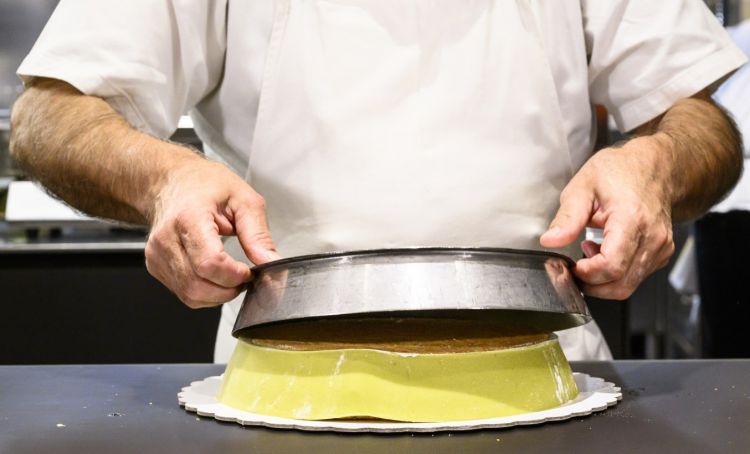
And how do you manage?
Not always by choosing the best ingredient, but also by choosing the person who is capable of growing, of listening, of sharing ideas. I’m interested in creating a virtuous circle that connects primary and secondary producers, which is us who use those raw materials and transform them, finding the most suitable ways to preserve the identity of the ingredient even when it is no longer a raw material. Always having in mind the goal of saving water, energy, of reducing waste. Using the whole ingredient. So we serve tomato peels as an aperitif, we dry them and we make crackers. With the seeds of the chilli pepper which we remove to have a different level of hotness, we make a powder which we use to create balance in a dish, without wasting anything. And there are many other examples of internal economies that help us prove the dutiful respect for those who produce the raw materials: that is to say the farmer, and nature itself.
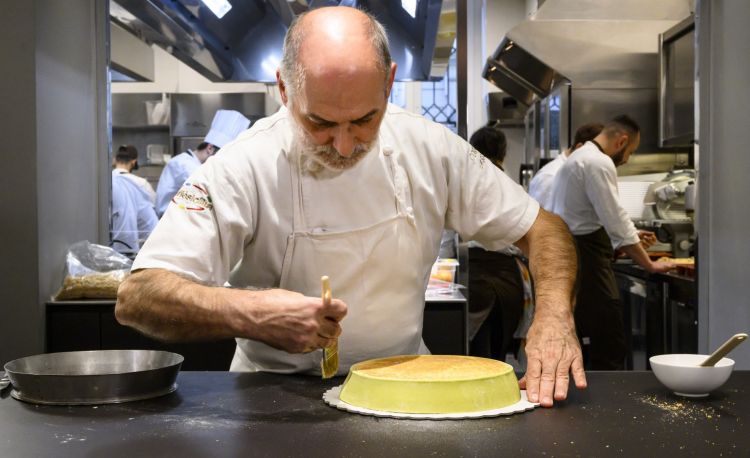
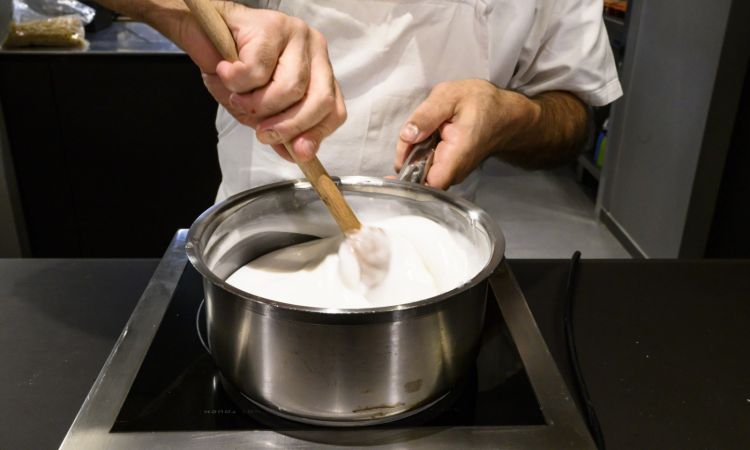
Fine dining, let’s speak of this now, seems to have taken into account many of these values. And it looks like it can take the responsibility of creating a bridge between entities that seem further and further apart, if not antithetical, like big cities and the countryside, urban centres and rural world. Do you agree?
There’s more sensitivity because this is where we have earlier understood that we risked loosing a unique heritage, represented by small farms, especially the family run ones. Farmers who generation after generation reproduce the seeds they sew, thus saving a richness that would otherwise disappear, because there would only be industrial seeds, all the same, all around the world, with no connection with the material culture of the people using those seeds. We must homage these farmers and we must make their survival possible, because they are the ones to preserve the stability of our territory, even from a geo-morphological point of view. Not the reckless industrialisation of agriculture, but the work of those who see the countryside a primary resource for their family. We must be successful in passing this important message.
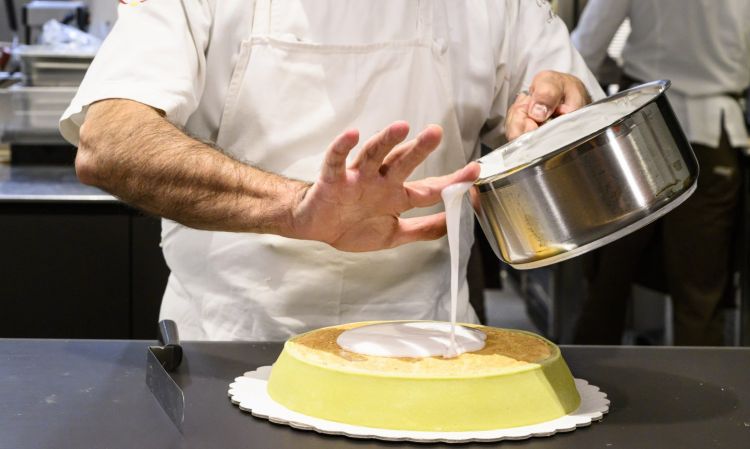
What message?
We must have larger and larger portions of public, especially among the young people, visit the countryside to shorten the supply chain, to enjoy the freshness of a freshly picked product. Supply chains need time to reach the big cities. And so we deprive products of their freshness, their genuine flavours. We must understand that agricultural produce must be bought in the countryside, we must ask the society that has generated it to abandon the logic of shopping centres that destroyed vegetable gardens on the outskirts. We must re-think and retro-innovate, bringing into the present the truly valid values of the past, the processes we believed too old because too artisanal, which in fact have a very big value in that they cannot be replaced by an industrialisation that is too fast and too little respectful of nature and its production.
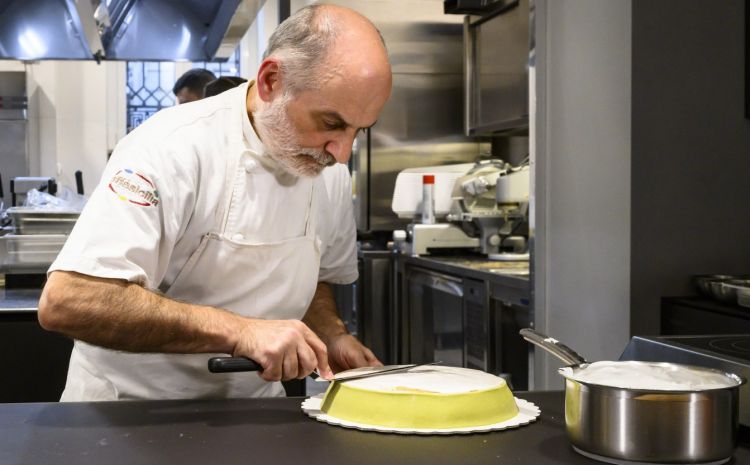
for us is a dessert and an emblem both of
Caffè Sicilia and of Sicilian pastry-making. It’s a cake that for over 1,000 years has represented the moments of celebration in family and society. A cake associated with big religious holidays and big family holidays. Birthdays, engagements, weddings, all had Cassata. We present it in our contemporary version, and the thing I would like to point out above all is that this dessert has survived for over 1,000 years without ever being a replica of itself. Each era has its Cassata, which travels in parallel with the tastes of its consumers, its people. It evolves
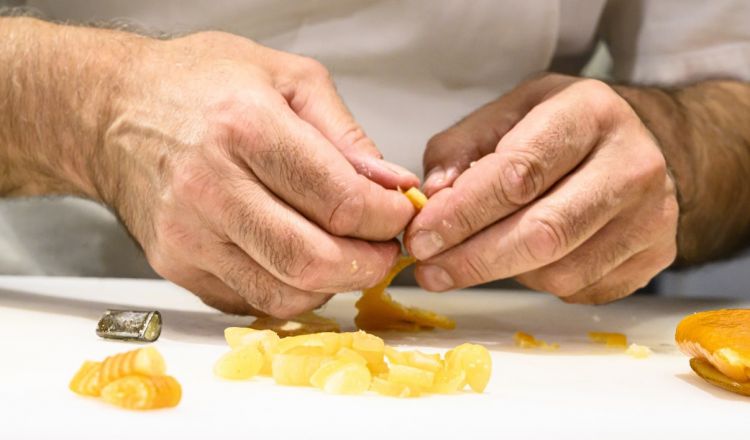
In which way has Cassata changed?
I cannot imagine that one thousand years ago they would use sponge cake, as there was no such thing, or a cream of ricotta, which also didn’t exist. They must have used another dairy product, who knows what. We had no sugar, because there were no sugar beets, so it must have been cane sugar, or a molasse, or honey. The candied fruits were most likely dates, because of the Arabs. Yet while changing the ingredients, the result is always the same: a delicacy. We also tried to enhance it further, with less unnecessary sugar, and enriching it with flavours that were necessary, giving new dignity to all the tassels that make this big mosaic. Almonds, pistachios, soft sponge cake, the liquid in which we soak the sponge cake is made with the syrup we use to candy the fruit. Hence the orange and lemon used as a decoration also contribute in the making of the syrup that gives the sponge cake its fruity aroma. We only add a little rum and a little vanilla liqueur to complete the bouquet.
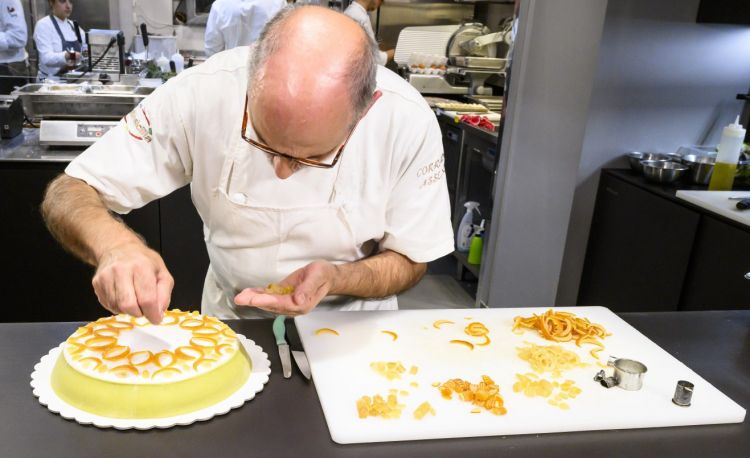
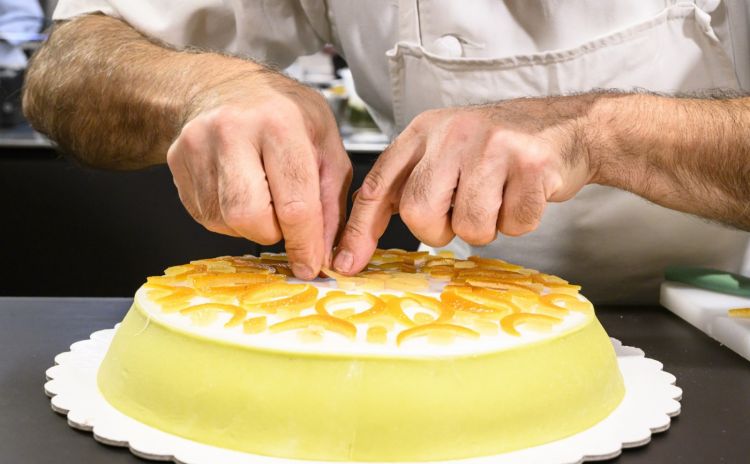
You mentioned the decoration. Which in this Cassata has a further meaning for you, for your work and your family. There’s an important passing of the baton, between you and your son Francesco, who designed the decoration we now find of top of this cake of yours...
Yes, it’s true. The decoration is the part on top, the noble part that hints at art. The pleasure and inspiration we allow ourselves when we can decorate the white canvas that is represented by the fondant cane sugar covering the Cassata. That’s where the important passing of the baton takes place: from my more classic style, coherent with my background of jealousies and cloistered convents, to the more modern, pop, lively and easy-going and very artistic attitude of my son. There are dancers on these Cassate. They are Degas’s dancers, the dancers of the great classics, but this design is also reminiscent of the hunters in the caves of Lascaux. Take notice: two colours, lemon and orange, to decorate a corps de ballet as if it were a graffiti on a prehistoric rock.
How important is this passing of the baton with your son, now?
Can I say it means "everything"? Indeed, it does. It’s everything.
Translated into English by Slawka G. Scarso